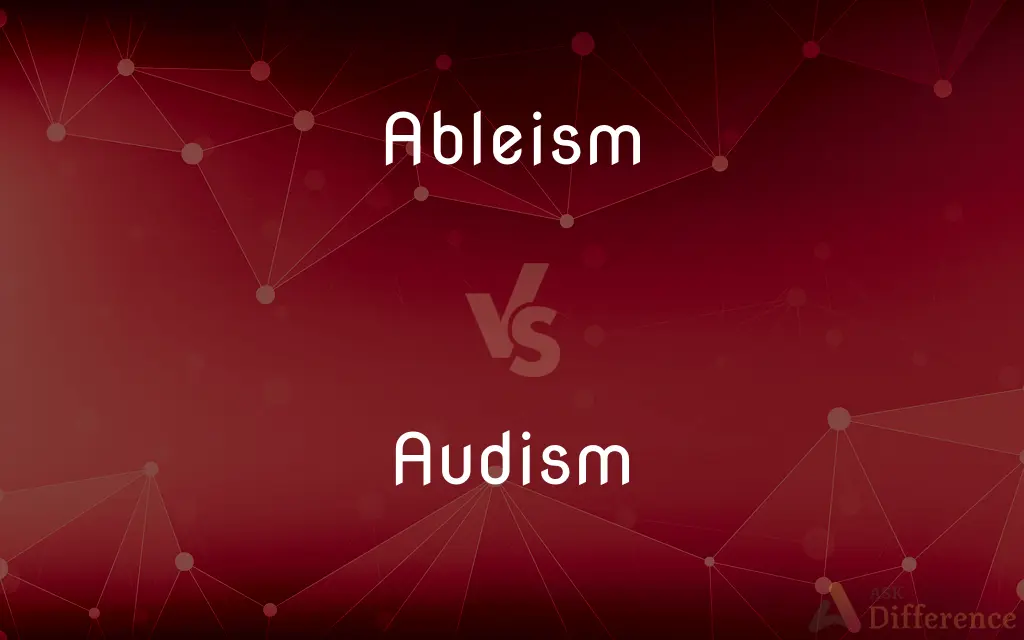Ableism vs. Audism — What's the Difference?

Difference Between Ableism and Audism
ADVERTISEMENT
Compare with Definitions
Ableism
Ableism (; also known as ablism, disablism (British English), anapirophobia, anapirism, and disability discrimination) is discrimination and social prejudice against people with disabilities or who are perceived to be disabled. Ableism characterizes people as defined by their disabilities and inferior to the non-disabled.
Audism
Audism is discrimination against deaf people whether they identify as culturally Deaf or not. Tom L. Humphries coined the term in his doctoral dissertation in 1975, but it did not start to catch on until Harlan Lane used it in his writing.
Ableism
Discrimination or prejudice against people with disabilities, especially physical disabilities.
Audism
The belief that people with hearing are superior to those who are deaf or hard of hearing.
Ableism
Discrimination against persons with disabilities or favour of those without. th c.}}
ADVERTISEMENT
Audism
Discrimination or prejudice against people who are deaf or hard of hearing.
Ableism
Discrimination in favor of the able-bodied
Audism
(sociology) The notion that one is superior based on one's ability to hear or behave in the manner of one who hears.
Share Your Discovery

Previous Comparison
Rock vs. Crag
Next Comparison
Enigmatic vs. Charismatic













































